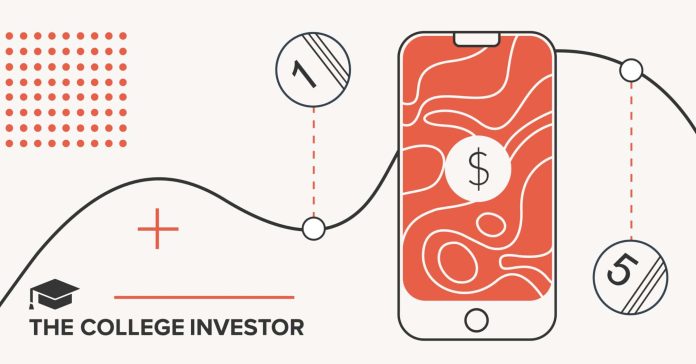- No official communication from the Department of Education has left borrowers confused on what steps to take to re-certify their income for Income-Driven Repayment plans.
- Borrowers unable to re-certify may see their monthly payments jump to the 10-year standard repayment level.
- MOHELA has stated it has not been directed to extend recertification deadlines for IBR, PAYE, and ICR borrowers.
Millions of student loan borrowers relying on Income-Driven Repayment (IDR) plans are now facing unexpected increases in their monthly payments. IDR applications are currently paused following a court order blocking the SAVE plan, but this pause is also preventing routine income recertification, which when missed, causes payments to skyrocket.
While many anticipated extensions for IBR, PAYE, and ICR recertifications due to the ongoing processing pause, a recent statement from MOHELA has cast doubt on whether borrowers will actually receive extra time. Our previous reporting, also echoed by other publications, was that loan servicers would be pushing annual recertification deadlines during the processing pause.
MOHELA, one of the largest federal student loan servicers, posted an alert on its online portal that it has not received instructions from Federal Student Aid (FSA) to extend recertification deadlines for these repayment plans. This leaves many borrowers with two options: accept significantly higher monthly payments or request a forbearance.

The uncertainty follows earlier reports that borrowers on Reddit and other student loan forums about their recertification dates moving.
The issue is that many borrowers in the SAVE plan were seeing their recertification deadlines extended. However, for those in PAYE, IBR, and ICR, the outlook remains far less clear.
What Happens If You Miss Your IDR Recertification Deadline?
Borrowers in Income-Based Repayment (IBR), Pay As You Earn (PAYE), and Income-Contingent Repayment (ICR) are required to recertify their income annually to maintain lower monthly payments based on their earnings.
When borrowers miss the deadline, they are not removed from their IDR plan, but their payments default to the standard 10-year repayment amount, which can result in substantially higher bills.
For borrowers accustomed to manageable payments under an IDR plan, the jump to a standard 10-year repayment schedule could mean a sudden and unexpected increase of hundreds or even thousands of dollars per month.
MOHELA is encouraging borrowers enrolled in auto pay to cancel their automatic payments to ensure that they are not automatically billed for a payment they cannot afford.
Some borrowers may not have had to recertify their income since prior to the pandemic in March 2020, meaning their IDR payments may have been significantly lower.
Can You Pause Your Payments?
For borrowers who cannot afford the sudden payment increase, forbearance is an option. MOHELA has stated that borrowers can request a forbearance or deferment to temporarily suspend payments. However, this decision comes with trade-offs:
- Forbearance pauses payments but may not count toward student loan forgiveness. Some types of forbearance qualify for Public Service Loan Forgiveness (PSLF) and IDR forgiveness, while others do not.
- Interest may continue accruing. Even though payments are paused, borrowers could see their loan balance grow due to added interest.
- Borrowers must take action to request a forbearance. Unlike the automatic processing pause for IDR applications, borrowers seeking relief from higher payments must submit a forbearance request themselves.
Borrowers can find forbearance and deferment request forms on StudentAid.gov/forms-library and upload them to their MOHELA account.
Confusion Over SAVE vs. Other IDR Plans
Borrowers enrolled in the SAVE plan appear to be receiving recertification extensions, specifically awaiting the final outcome of the court proceedings.
Many borrowers on SAVE have reported seeing their recertification dates pushed back automatically. However, for PAYE borrowers, experiences are mixed, some are reporting an extension, while others are seeing their payments increase.
In a review of Reddit posts for the last two weeks, we found the following servicer-specific trends across over 70 threads:
- Move: Many borrowers report recertification dates pushed to late 2026 or early 2027.
- AIDE ALLOW: Dates are generally extended to 2026.
- Nelnet: There’s variation, with some dates still in 2025 and others pushed to 2026.
- Edfinancial: Dates are being pushed to 2026 and 2027.
However, many borrowers are mixing the various different plans. Most of the dates moving are related to SAVE, and very few are related to PAYE or IBR.
Without clear guidance from FSA on whether all IDR borrowers will receive extensions, many are left wondering whether they should prepare for higher payments or seek forbearance.
What Borrowers Can Do Now
For borrowers struggling with this uncertainty, there are steps they can take to manage their payments and avoid delinquency and default:
Check Your Loan Status Immediately
You need to be monitoring your loans everyday if you’re nearing recertification.
- Log into StudentAid.gov to see your payment amount and recertification date.
- If you have received a higher bill than expectedthis may be due to a missed IDR recertification.
Cancel Auto-Pay If Needed
If you are enrolled in auto-pay and can’t afford the higher amount, consider pausing auto-pay to avoid overdrafts.
Request a Forbearance If Necessary
If your payments have jumped and you can’t afford them, you may need to apply for forbearance. You can submit a forbearance request via StudentAid.gov or through your loans servicer to temporarily pause payments.
Watch for Future Updates from FSA
While MOHELA has stated that it has not been directed to extend IDR recertifications, we expect the Department of Education or FSA to issue guidance in the coming weeks.
Borrowers should continue checking loan servicer messages and StudentAid.gov for updates.
The current situation remains fluid, and many borrowers are caught in a waiting game, unsure if relief is coming or if they need to prepare for significantly higher monthly payments.
For now, staying informed and taking proactive steps will be key to avoiding financial strain.
Don’t Miss These Other Stories:
Why Student Loan Borrowers Are Losing 100+ Credit Points
$1 Trillion In CDs Are Maturing In 2025: Here’s What You Need To Know
Best Credit Building Tools To Boost Your Credit Score
Create your very own Auto Publish News/Blog Site and Earn Passive Income in Just 4 Easy Steps




![Learn the ABCs of DXPs [Sponsored]](https://blog.5gigbucks.com/wp-content/uploads/2024/02/Learn-the-ABCs-of-DXPs-Sponsored-100x70.png)


